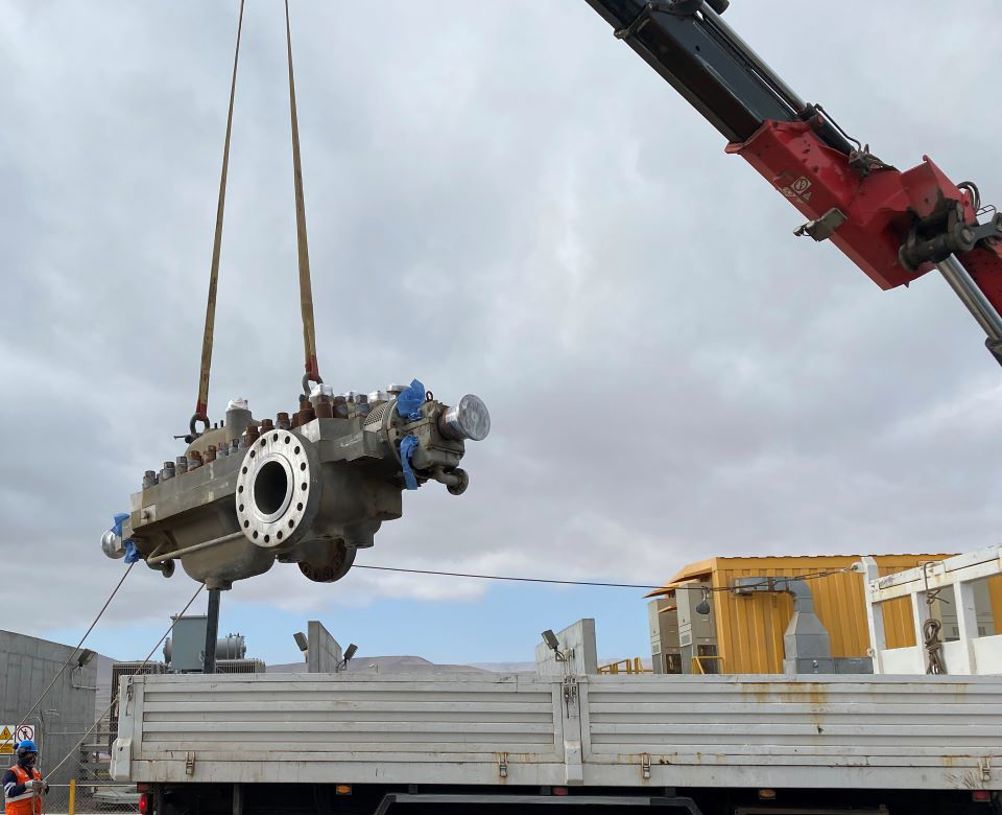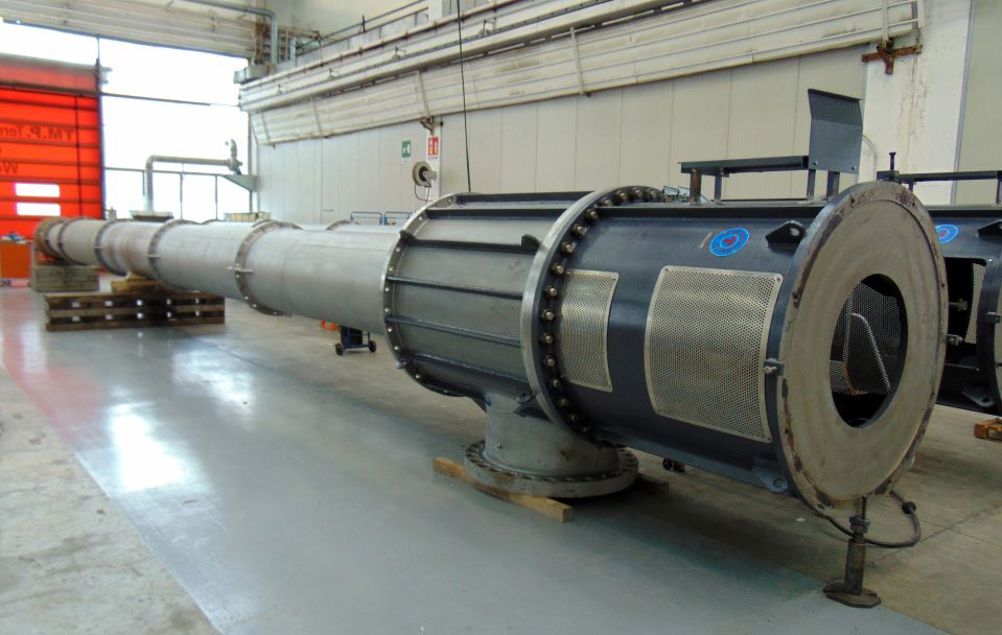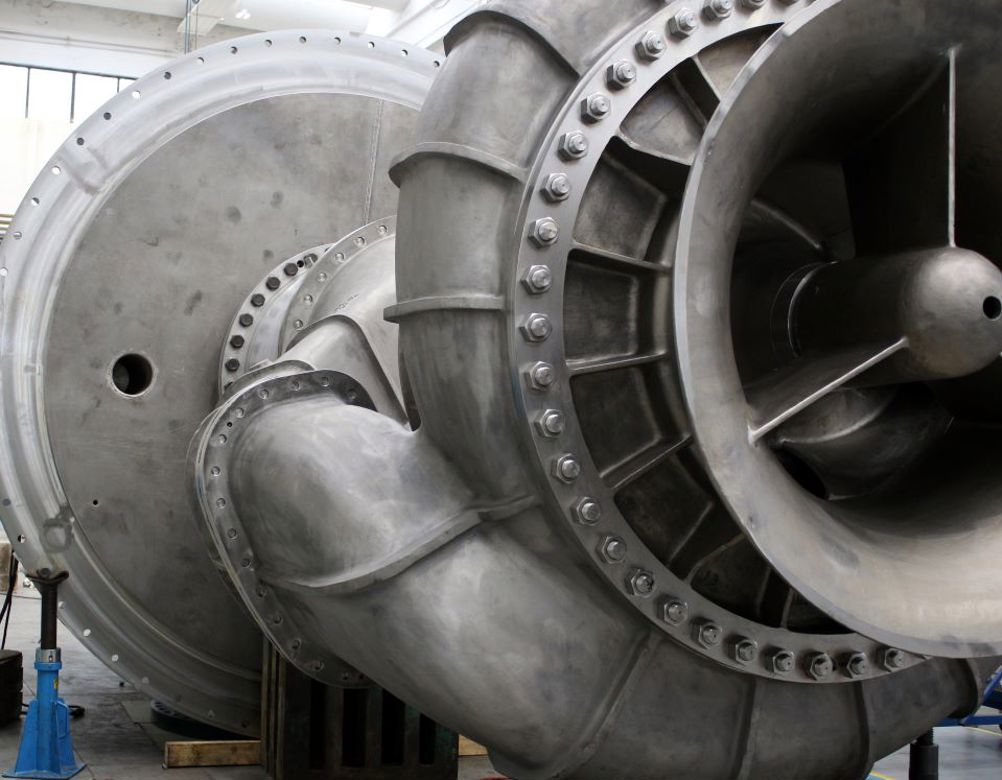Numerous experts, such as economists, scientists, and geopolitical analysts, warn that it is high time to stop taking water for granted. Even though water covers 70% of the planet, only 3% of it is suitable for human use, which has boomed over the 20th and 21st centuries due to industrialization, and an ever-growing and wealthier population. Climate change has further exacerbated the issue, posing a significant threat to this precious resource.
Estimates from the Organization for Economic Cooperation and Development (OECD) say that more than half the human population will live in areas where the water supply is stressed by 2030.
Such scarcity could bring about a “water shock”, causing a sharp price increase affecting nearly every industrial sector – from agriculture to energy – and prompting leaders to address the issue in the light of climate change.
Thanks to its capacity to innovate, extensive experience in the sector, and wide portfolio of pumps and services, Trillium Flow Technologies is well positioned to support operators in achieving higher efficiency, reliability, and sustainability in their industrial plants’ water related applications.
Water pipelines
Trillium offers high-energy, high-efficiency BB1-type pump package solutions for water pipelines, including the related booster pumps.
For example, Trillium’s Termomeccanica Pompe legacy brand supplied all the pump packages for the pipeline system of a major water transmission project in the Middle East. The project involved the construction of a 194 MIGD desalination plant near two existing plants to meet the growing water demand in the country. The new project comprised five pumping stations, three water reservoirs, and a 345km-long pipeline network with more than 30 pumps, five of which were equipped with a 10 MW motor. The pipeline system transports the desalted water from the coast up to an altitude of 1,700m, creating a pressure of 80 bar in the system.
To optimize the pump design, Trillium’s R&D department carried out computational fluid dynamics (CFD) work to maximize efficiency and a finite element method (FEM) analysis to simulate stress and strain to optimize the mechanical design. Specifically, Trillium investigated the contact area between the lower casing and cover to ensure proper metallic sealing. The results of this calculation were verified during a hydrostatic test using strain gauges installed on the pumps. To guarantee a low vibration level, lateral and torsional critical speed analyses were also performed to verify the rotor’s compliance with API 610 standards.

Trillium also supplies API 610 BB3-type pump packages for water pipelines. The company recently supplied pump packages to perform water transfer service at the five pumping stations installed along a 165km-long water pipeline system in Latin America. The pipeline brings desalted seawater from a coastal desalination plant through an extremely dry desert to feed various processes of a high-altitude copper and molybdenum mine.
The water transfer pump solution from Trillium’s Gabbioneta Pumps brand consisted of oil and gas API 610 standard BB3-type heavy-duty process pump packages with system integration to respond to the stringent requirements of the pumping stations of the pipeline system, the first pumping station being at 64m above sea level and the fifth pumping station at 3,500m above sea level. The 7-stage pumps are equipped with non-metallic bushings to optimize efficiency, and the pump packages each include a motor equipped with a VFD which constantly regulates speed, an API 682 mechanical seal with plan 11, a lube oil system for the pump thrust bearings forced lubrication, and radial and thrust bearings vibration and temperature sensors for monitoring purposes.
R&D studies were conducted to develop the pump package, including CFD and FEM. In addition, pump performance tests and complete unit tests were performed in-house at Trillium’s facilities in Milan, Italy.
Sea water supply
Trillium also plays an active role in the new energy efficient focused SWRO desalination sector. The company recently provided Termomeccanica Pompe engineered pull-out type vertically suspended pumps for sea water supply as well as single-stage axially split double suction horizontal pumps for potable water distribution for the world’s largest desalination plant located in the United Arab Emirates, producing 40 MIGD of potable water a day and serving a population of 700,000. The plant follows the latest strategy of the end user based on decoupling water production and power generation by using electricity generated from solar power for its desalination SWRO technology to increase efficiency. This is a critical project in the modernization of the water sector of the Emirate in question that will significantly contribute to the reduction of the nation’s carbon footprint.

Energy saving solutions
On top of the high-efficiency pump solutions it offers, Trillium also proposes comprehensive upgrade and rerate solutions for existing pumps, including those from other OEMs. These solutions aim to provide significant benefits not only in terms of reduced maintenance costs but also in energy savings at both the pump and plant levels.
Trillium implemented an energy saving project at an Italian aqueduct, substituting the impellers of the pumping station’s pumps, which led to a 4% increase in pump efficiency (from 80% to 84%) and a subsequent 20% reduction in the plant’s energy consumption.
The company also participated in a Middle East desalination plant energy saving project where the end user opted to replace core components of the primary power-consuming machines, specifically the brine recirculation and seawater supply pumps. Trillium conducted an in-depth engineering study and implemented a hydraulics optimization solution for the pumps while preserving the existing interfaces and materials according to the end user’s request.
The results were remarkable: the energy consumption of the brine recirculation pump was reduced by 123 kW per pump, equivalent to a 9.8% energy efficiency improvement. This led to a 1.5 MW annual energy saving at the plant level, corresponding to 7,630 tons of carbon dioxide emissions reduction.
Pump manufacturers such as Trillium have a vital role to play in shaping a sustainable future that is water-secure and energy-efficient.

About the author
This article was provided by Trillium Flow Technologies.
This article first appeared in the March/April 2024 issue of World Pumps magazine. To read the full issue, click here.







